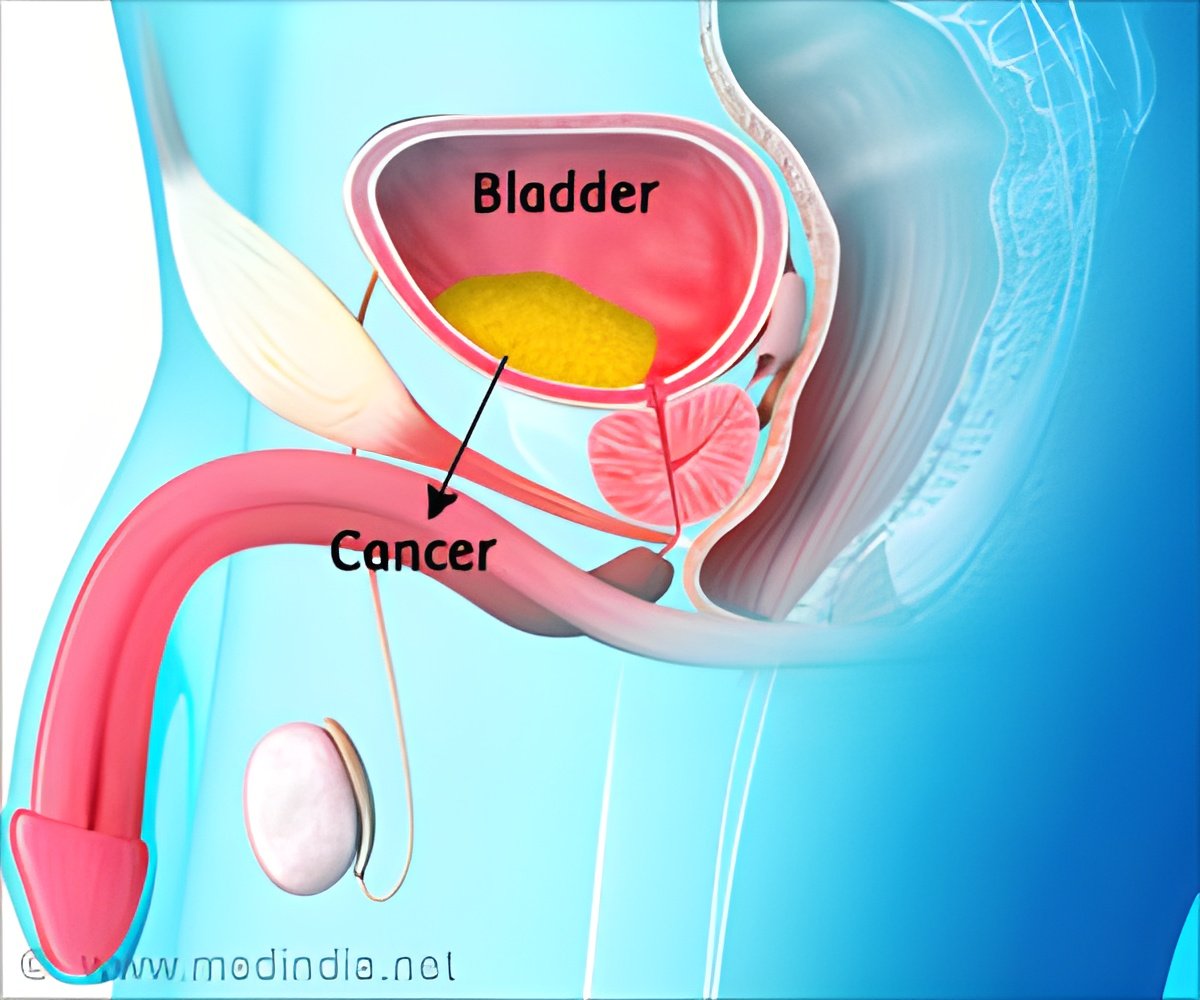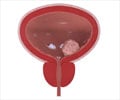New non-invasive and individualized technique using urine offers fresh hope for detecting and treating bladder cancer.

TOP INSIGHT
New non-invasive and more personalized technique uses a liquid biopsy from urine for detecting and treating bladder cancer. The method is also found to be simple, cost-friendly, and painless in bladder cancer detection and treatment.
Read More..
Their study sets forth a cost-friendly, simpler and painless technique that can determine the best treatment for each person's bladder tumor, monitor the progress of that treatment, predict or detect cancer recurrence early, and identify new drugs that are sorely needed for this common cancer.
Bladder cancer is the most common urologic cancer in China and is the top 10 most common cause of cancer death in the U.S, leading to approximately 17,000 deaths in 2018. Currently, no method is available to predict which patients will respond to therapy - and, apart from new and limited use of immunotherapy, treatment regimens for bladder cancer have not improved, and survival rates have not increased in the last 30 years.
In addition, because cancer comes back in more than 60% of patients within two years after the initial diagnosis, almost all patients need long-term intrusive, uncomfortable, expensive cystoscopy which makes bladder cancer the costliest cancer (per case) of all cancer types, according to study investigators.
"This is the first study to show, using patient samples, that a 'living liquid biopsy' from urine can help determine treatment. This work also suggests that we might be able to grow and test cancer cells for treatment from other 'living biomarkers' found in blood and saliva. We are just at the beginning of this new diagnostic innovation," says the study co-senior author, Xuefeng Liu, MD, professor of pathology and oncology and member of the Center for Cell Reprogramming at Georgetown University and Georgetown Lombardi Comprehensive Cancer Center.
The ability to use a patient's urine to grow cells is a transformational innovation from Georgetown called "conditional reprogramming" or CR. Patient-derived cells using CR can grow indefinitely without genetic manipulation, says Liu. Before this technique, which is less than a decade old, normal cells could not grow in a lab culture, and cancer cells acquired numerous genetic mutations using previous culturing techniques. In the short time that investigators worldwide have been using CR, the method has been proven very useful in basic and clinical research in many kinds of cancers, the National Cancer Institute Office of Cancer Genomics is also developing conditional reprogrammed cells using the Georgetown method as a next-generation human cancer model.
Liquid biopsies could displace the current method of analyzing a patient's tumor to help direct treatment. The authors say new research suggests that liquid biopsies provide equally accurate and dynamic clinical information and can capture the complex genetic mutational profile of primary and metastatic tumors. Urine is one of the most convenient, painless and cheapest sources of liquid biopsies - and because urine is stored in the bladder until released, it readily provides the cancer cells needed for bladder cancer CR.
This study, published as a "rapid report," compares tumor biopsies from 70 patients with individual urine specimens - both processed through CR cultures (CRC). Primary cells isolated from urine and tumor samples both rapidly formed CRC and representative three-dimensional compact spheroids. The overall success rate of culturing urine CRC was about 84%.
"Similarly, the analysis of the mutation ratio for both patient tissue and corresponding CRC confirmed that both single nucleotide variants and DNA insertions and deletions were retained during the culturing," says Liu.
This means that a patient's urine produced cancer cells that molecularly matched their cancer tissue sample. "We also identified some mutations not identified in the original tumor biopsies, suggesting that the urine cell cultures better reflect overall tumor diversity than a single biopsy," he says.
"The CRC technique may also expand our understanding of how low-frequency mutations help lead to bladder cancer development and progression. Overall, CRC cultures may identify new actionable drug targets and help explain why this cancer is so often resistant to treatment."
After determining that the urine colonies and tumor tissue samples had matching molecular characteristics and genetic alterations, the researchers tested urine-based CRC cancer cells with 64 clinical oncology drugs. They found that, overall, the urine-based cancer cells were resistant to more than half of the drugs. And they discovered that many of the urine cancer cells were highly sensitive to one of the drugs, bortezomib, which is currently being tested for a different GU tumor, urothelial cancer.
Investigators also showed that as tumors progress, they change to become more molecularly diverse. "In our study, we can obtain urine samples at any time before and after treatment, which provides the possibility to obtain real-time pathological conditions," Liu says. In fact, for some patients, researchers compared urine-based CRC-based drug sensitivities with a patient's clinical responses to traditional treatment as well as to CT and PET follow-up images. They discuss how this analysis on seven patients matched the patient's clinical history and their urine-based CRC findings, "which confirms and supports the use of urine conditional reprogramming in clinical practice," the researchers say.
"We successfully built up a novel, convenient model of CRCs that faithfully retains the molecular characteristic and genetic landscapes of the original tumor," the study authors write. "The high success rate and rapid proliferation of urine CRCs imply they are suitable for large-scale drug testing."
Liu adds that the proven ability to form 3-D tumor spheroids from CRC will allow them to study the tumor microenvironment that contributes to cancer treatment, resistance, and progression. "This novel in vitro bladder cancer system opens us new avenues for predicting patient-specific drug responses and turning the promise of personalized medicine into a reality," he says.
Source-Eurekalert
 MEDINDIA
MEDINDIA




 Email
Email










